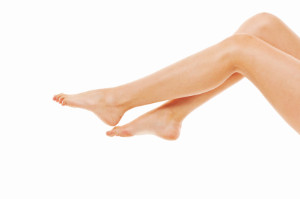(410) 764-7044
6506 Reisterstown Road, Baltimore
1205 York Road, Lutherville
6305 Belair Road, Baltimore
7809 Wise Avenue, Dundalk
Causes of Ingrown Toenails
Sunday, 12 November 2017 00:00When there is an imbalance in the size of the nail and the enlargement of the skin edge, this may cause an ingrown toenail. Reasons for this may include the nail naturally growing inward, improper shoe fitting, and hereditary conditions. Other causes may be from an improper pedicure and/or poor foot hygiene. Common symptoms can be tenderness of the nail, swelling and redness. Additionally, drainage and pus may occur if there is an infection involved. Home remedies may include soaking the affected toe in lukewarm water, or applying antibacterial ointments for bacterial infections and antifungal ointments for fungal infections. Those who have diabetes or poor circulation are advised to consult a podiatrist even if the symptoms appear to be mild.
Ingrown toenails can become painful if they are not treated properly. For more information about ingrown toenails, contact one of our podiatrists of Plaza Podiatry. Our doctors can provide the care you need to keep you pain-free and on your feet.
Ingrown Toenails
Ingrown toenails occur when a toenail grows sideways into the bed of the nail, causing pain, swelling, and possibly infection.
Causes
- Bacterial infections
- Improper nail cutting such as cutting it too short or not straight across
- Trauma to the toe, such as stubbing, which causes the nail to grow back irregularly
- Ill-fitting shoes that bunch the toes too close together
- Genetic predisposition
Prevention
Because ingrown toenails are not something found outside of shoe-wearing cultures, going barefoot as often as possible will decrease the likeliness of developing ingrown toenails. Wearing proper fitting shoes and using proper cutting techniques will also help decrease your risk of developing ingrown toenails.
Treatment
Ingrown toenails are a very treatable foot condition. In minor cases, soaking the affected area in salt or antibacterial soaps will not only help with the ingrown nail itself, but also help prevent any infections from occurring. In more severe cases, surgery is an option. In either case, speaking to your podiatrist about this condition will help you get a better understanding of specific treatment options that are right for you.
If you have any questions please feel free to contact our offices located in Baltimore, Lutherville, and Dundalk, MD . We offer the newest diagnostic and treatment technologies for all your foot and ankle needs.





